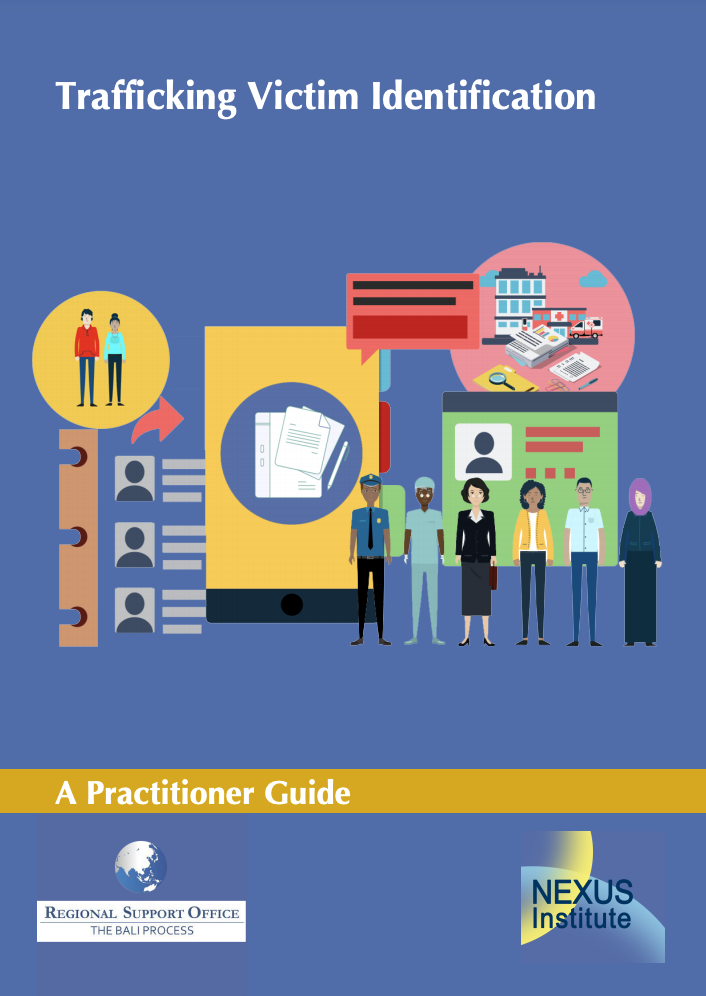This Practitioner Guide distills and presents existing research and evidence on the identification (and non-identification) of trafficking victims, including challenges and barriers that may impede victim identification and practices that may enhance it. It is part of the NEXUS/RSO Practitioner Guide series: Improving the Identification, Protection and Reintegration of Trafficking Victims in Asia, which shares knowledge and guidance on different aspects of trafficking victim protection, including:
• Trafficking victim identification
• Trafficking victim protection and support
• Recovery and reintegration of trafficking victims
• Special and additional measures for child trafficking victims
This series is drafted by NEXUS Institute and published jointly by NEXUS Institute and the Regional Support Office of the Bali Process (RSO). Practitioners from Bali Process Member Governments of Australia, Indonesia, Malaysia, Philippines, Thailand and Vietnam contributed to the development of these guides in a virtual roundtable discussion convened by the RSO in April 2021. The project is generously funded by the Australian Department of Home Affairs, through the RSO. The series is available on the NEXUS Institute website and the RSO website.
This guide is for practitioners in Bali Process Member States, as well as further afield, seeking to better understand and conduct the identification of adult and child trafficking victims. This includes a range of practitioners engaged in victim identification and referral (for example, police, prosecutors, healthcare practitioners, immigration and border authorities, labor inspectors, social workers and child protection staff as well as staff of multi-disciplinary teams (MDTs), task forces and victim identification agencies). This Practitioner Guide will also be useful for policymakers tasked with improving victim identification practice and procedures.

